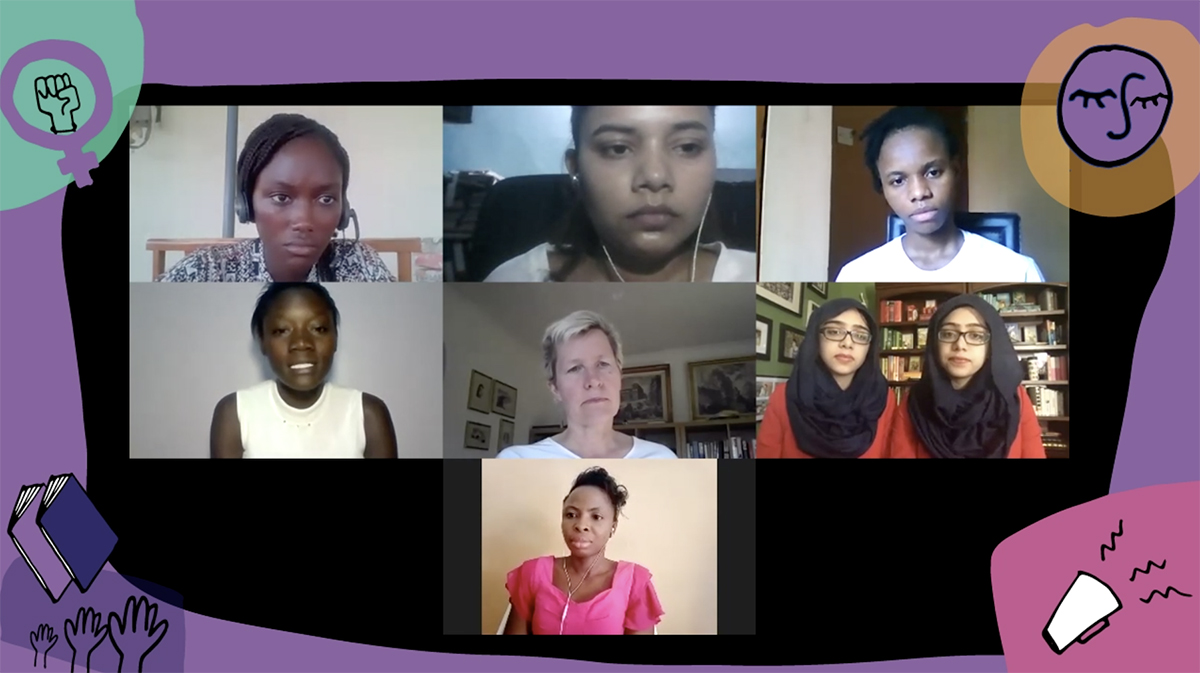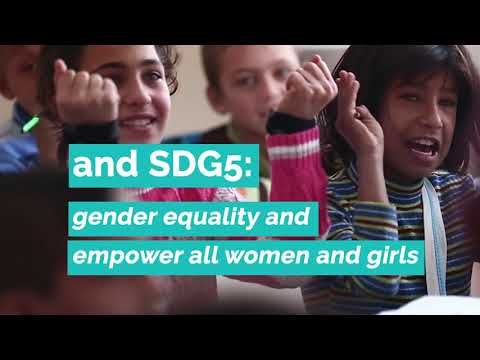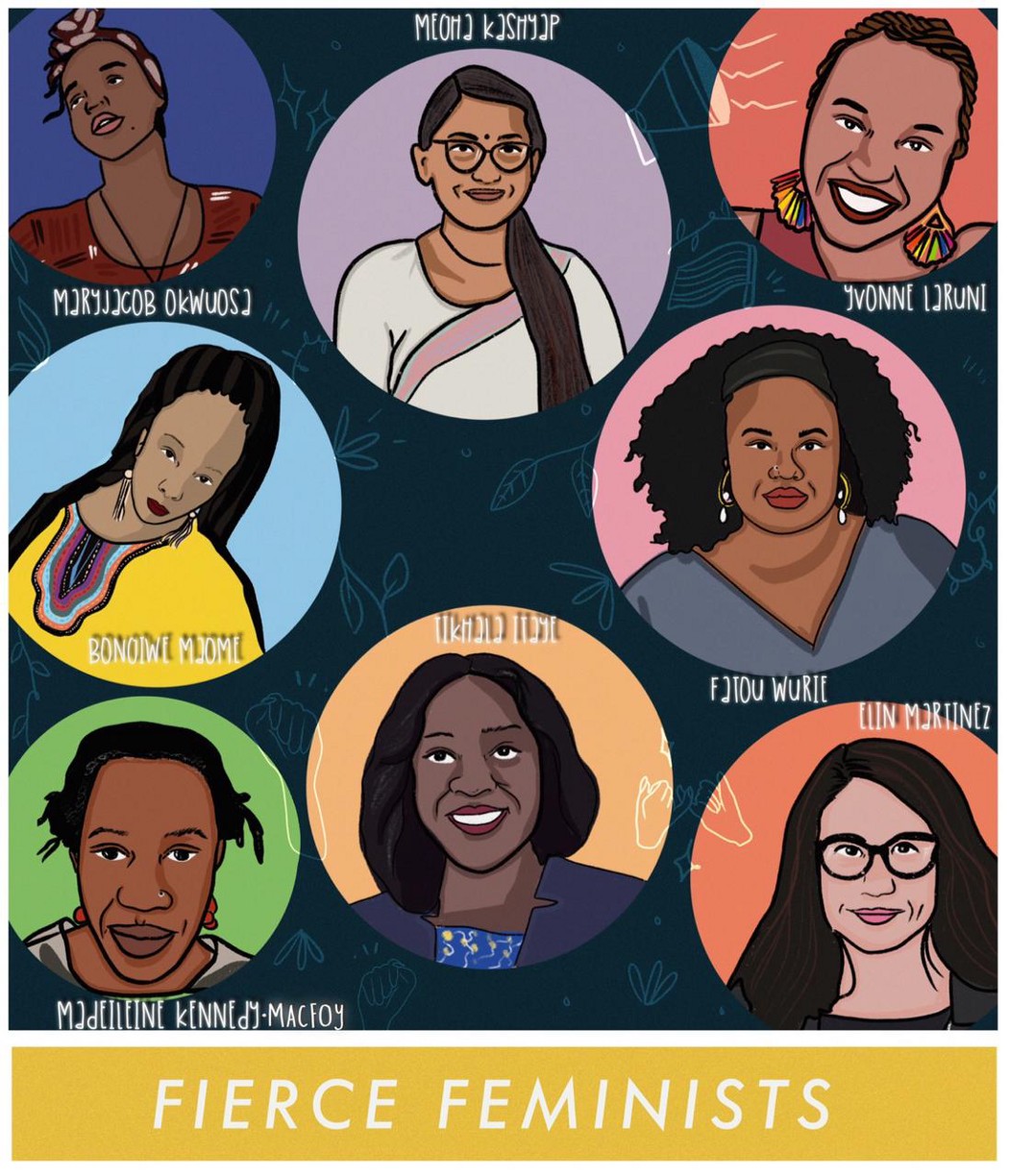Last month activists Beatrice, Maryjacob, Tolani, Pooja, Faith, Maryam, Nivaal, and Plan International CEO Anne-Birgitte (AB) Albrectsen came together from across the world for a virtual meeting as part of our intergenerational dialogue series. They discussed ideas around the theme of A New Normal in Education After COVID-19. Read on for our four fave moments from the dialogue!
1. “In my part of the world, data is crazily, crazily expensive. How do we expect girls who are trying to survive to be able to afford data?”
Nationwide lockdowns due to COVID-19 have forced a shift to the digital space. Beatrice, a single mother and activist from Kenya, explains that in her experience, many girls are living in rural communities that do not have the infrastructure to support regular internet access and connectivity, or it is simply not affordable. Girls’ access may also be restricted due to care burdens or the prioritization of male children. This gender digital divide can lead to deepening inequalities. By the time schools reopen, girls who have not been able to access learning online will be further behind. In a time where reports of sexual and gender-based violence are increasing in many communities, girls may find it more difficult to reach out for help and support. Feeling disconnected from social networks and services may also take a toll on girls’ mental health. Tolani’s vision for a ‘new normal’ post COVID-19: “A world where girls have access to all the latest technologies and can use it as much as boys can.”
2. “The digital space is also as unsafe as the open space we have”
Where internet and technology access is an option, girls who are spending more time online may face increased risks of cyber-bullying, sexual harassment and abuse. The rapid shift to a digital world has left many young people, and girls in particular, lacking adequate safety and protection online. Maryjacob, through her work with the Activista network, Nigeria, is providing information on digital literacy and how to report abuse on social media apps to support girls to safely navigate the digital space. This is just one example of how youth-led activism is innovating and adapting the work that they do to respond to the new challenges to gender equality posed by COVID-19. Pooja’s vision for a ‘new normal’ post COVID-19: “A world where girls are safe to learn, free from violence.”
3. We need to listen to girls’ experiences of the COVID-19 pandemic
The CEO of Plan International, AB Albrectsen, highlights the need to understand girls’ different experiences of the pandemic so that when they come back to school, their needs, experiences and traumas are heard as part of the response. For example, schools, communities and families need to allow space for pregnant girls and young mothers to be in school, and support policies that allow girls to have free and equal access to education, no matter their circumstances. Beatrice’s vision for a ‘new normal’ post COVID-19: “A world where a girl is not just a community member, but a decision-maker in the community.”

4. "We can use this crisis and the attention that is on girls’ education right now to create change”
With systems disruption, there is opportunity. Towards the end of the dialogue, young women identified several entry points to change the status quo and rebuild more gender-equal education systems:
- Address gender bias and stereotypes in teaching and learning materials. The reopening of schools is an opportunity to change educational content and look at it through a gender lens.
- Make education future proof. Encourage and support girls to take up STEM subjects and pursue careers in STEM.
- Make technology free, accessible and affordable. Harness its power to advance equality in education and increase learning opportunities for girls.
- Remove policies that discriminate against pregnant girls and young mothers. The young advocates agree that policies are an important tool in their activism, as they help to hold governments to account, and provide a foundation for campaigns and awareness-raising.
Maryjacob’s vision for a ‘new normal’ post COVID-19: “A world where girls’ education advocates and feminist activists no longer have work to do, because girls have access to education — just because they are humans and they are alive.”



 English
English العربية
العربية Български
Български Hrvatski
Hrvatski Čeština
Čeština Dansk
Dansk Nederlands
Nederlands Suomi
Suomi Français
Français Deutsch
Deutsch Ελληνικά
Ελληνικά हिन्दी
हिन्दी Italiano
Italiano Română
Română Русский
Русский Español
Español Maltese
Maltese Zulu
Zulu አማርኛ
አማርኛ